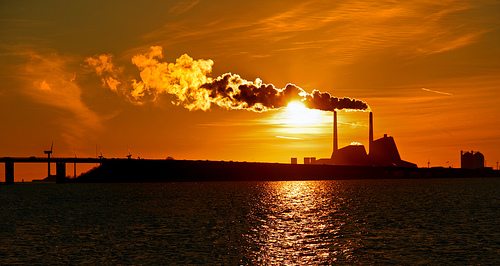

Energy
IEA: shift from fossil fuels to renewable energy ‘long overdue’
Electricity may usurp oil as the lifeblood of the global economy in the 21st century, but a massive decarbonisation effort is urgently required if the most devastating impacts of climate change are to be avoided, the International Energy Agency (IEA) has warned.
In a new report released on Monday, called Energy Technology Perspectives 2014, the IEA forecasts the future of the energy sector over the next 40 years.
It notes that much of the world’s electricity is currently generated by the burning of fossil fuels such as coal and gas, creating carbon emissions and driving climate change.
As demand for electricity increases around the world, governments must quickly adopt cleaner methods of energy generation if global warming is to be kept below the internationally agreed threshold of 2C, the IEA says.
To achieve this, its study suggests the carbon intensity of electricity generation must decrease by 90% by 2050.
The IEA observes that while the adoption of renewable energy sources in developing countries have offset emissions increases in richer countries, the “overall picture of progress remains bleak“.
Increased use of coal is putting the world at risk, and has increased the expected cost of decarbonisation efforts to $44 trillion through to 2050, the report says.
However, this investment would result in fuel savings of $115 trillion, easily offsetting the cost.
“We must get it right, but we’re on the wrong path at the moment”, said IEA executive director Maria van der Hoeven.
“Growing use of coal globally is overshadowing progress in renewable energy deployment, and the emissions intensity of the electricity system has not changed in 20 years despite some progress in some regions.
“A radical change of course at the global level is long overdue.”
This radical change must entail the addition of 92 gigawatts (GW) of solar photovoltaics generating capacity each year, alongside almost 80GW of onshore and almost 16GW of offshore wind wind each year, according to the report.
The adoption of carbon capture and storage (CCS) at more conventional power plants and an increase in the use of nuclear power may also be necessary, the IEA concludes.
The report’s verdict on fracking is also bad news for the shale gas industry. Gas, the IEA argues, “must be seen for what it is”: a transitional fuel, and not a low-carbon solution.
This latest call for decarbonisation follows in the wake of the Intergovernmental Panel on Climate Change’s landmark review on the mitigation of global warming.
In the UN report, scientists also warned that the use of fossil fuels must be drastically cut to avoid the worst impacts of climate change while investment in renewables must rapidly increase.
Further reading:
Fossil fuel subsidies preventing transition to low-carbon economy
IPCC climate report means cleantech ‘an attractive proposition for any investor’
IPCC report proves fossil fuel investors are ‘wrecking our future’
Renewable energy investment drops as technology becomes cheaper






























